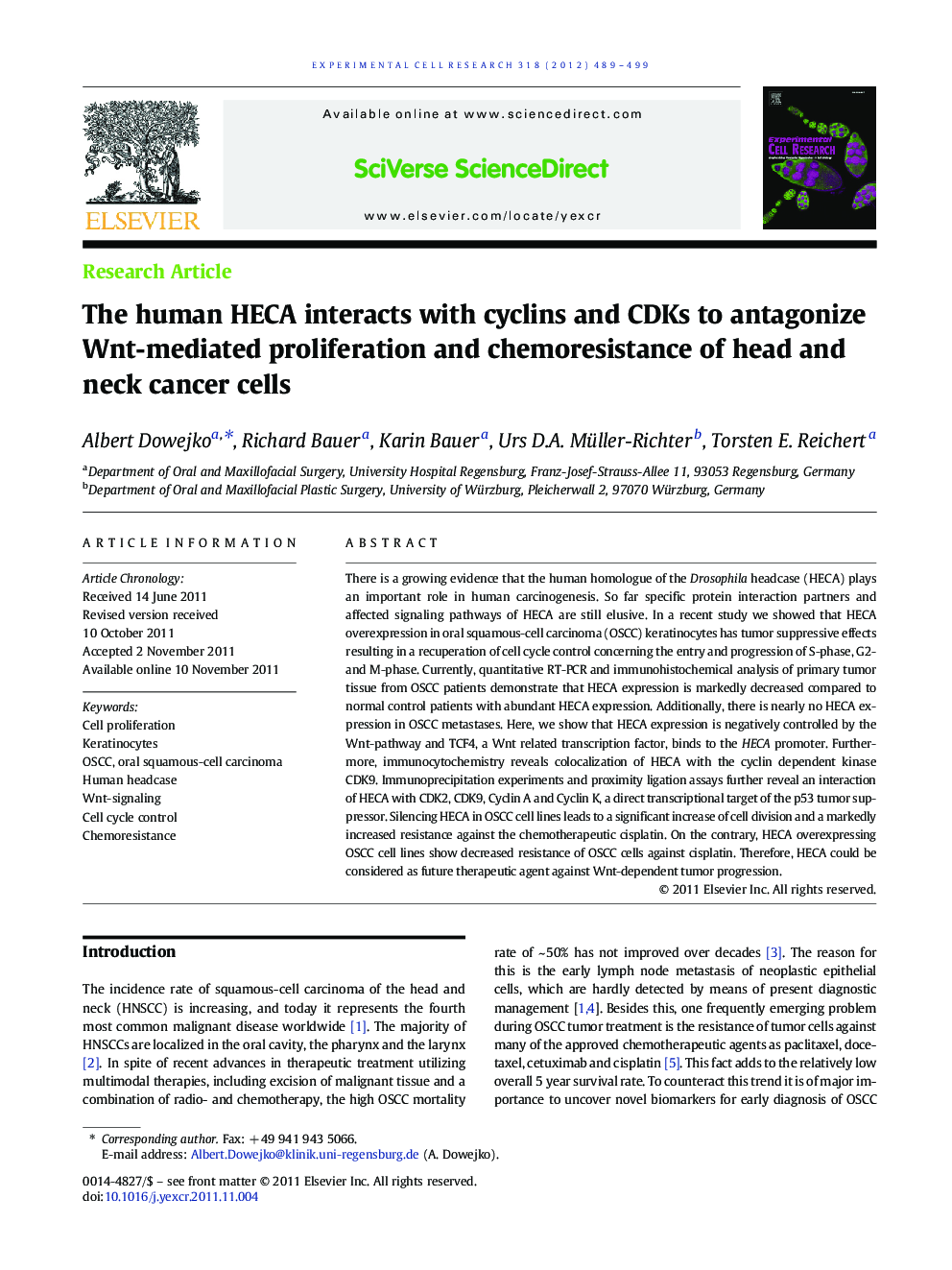| کد مقاله | کد نشریه | سال انتشار | مقاله انگلیسی | نسخه تمام متن |
|---|---|---|---|---|
| 2130727 | 1086597 | 2012 | 11 صفحه PDF | دانلود رایگان |

There is a growing evidence that the human homologue of the Drosophila headcase (HECA) plays an important role in human carcinogenesis. So far specific protein interaction partners and affected signaling pathways of HECA are still elusive. In a recent study we showed that HECA overexpression in oral squamous-cell carcinoma (OSCC) keratinocytes has tumor suppressive effects resulting in a recuperation of cell cycle control concerning the entry and progression of S-phase, G2- and M-phase. Currently, quantitative RT-PCR and immunohistochemical analysis of primary tumor tissue from OSCC patients demonstrate that HECA expression is markedly decreased compared to normal control patients with abundant HECA expression. Additionally, there is nearly no HECA expression in OSCC metastases. Here, we show that HECA expression is negatively controlled by the Wnt-pathway and TCF4, a Wnt related transcription factor, binds to the HECA promoter. Furthermore, immunocytochemistry reveals colocalization of HECA with the cyclin dependent kinase CDK9. Immunoprecipitation experiments and proximity ligation assays further reveal an interaction of HECA with CDK2, CDK9, Cyclin A and Cyclin K, a direct transcriptional target of the p53 tumor suppressor. Silencing HECA in OSCC cell lines leads to a significant increase of cell division and a markedly increased resistance against the chemotherapeutic cisplatin. On the contrary, HECA overexpressing OSCC cell lines show decreased resistance of OSCC cells against cisplatin. Therefore, HECA could be considered as future therapeutic agent against Wnt-dependent tumor progression.
► HECA is a new cell cycle regulator with anti-tumor features in head and neck cancer.
► During tumor progression HECA mRNA and protein expression decrease.
► The HECA promotor is a direct target of the Wnt/beta-catenin/TCF-pathway.
► The HECA protein antagonizes Wnt-mediated cell proliferation through interaction with major cell cycle factors.
► Modulating HECA level confers benefits for engaging tumor cells with cisplatin.
Journal: Experimental Cell Research - Volume 318, Issue 5, 10 March 2012, Pages 489–499